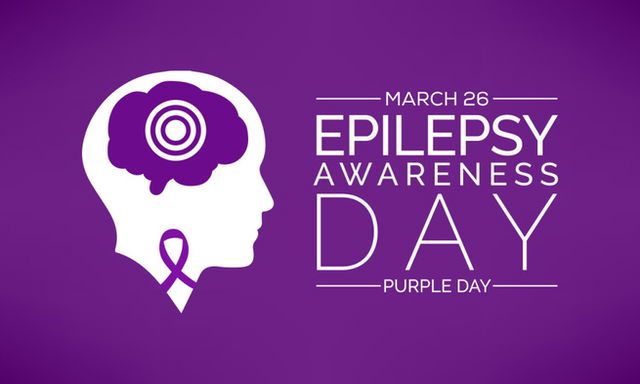- Calendar
- Calendar 2026
- March
- Purple Day
Purple Day
Purple Day is celebrated internationally on March 26, to raise awareness about Epilepsy. Even though this neurological disease affects around 50 million people worldwide and 3.5 million in the United States, there is still a lot of misinformation and stigma surrounding it.
Purple Day exists to give people the true facts about the disorder and let those who suffer from epilepsy know that they are not on their own. It encourages them to reach out to their community and advocate for better education on epilepsy, with the help of the many grassroots organizations dedicated to the cause.

History of Purple Day
Purple Day was founded in 2008 by Cassidy Megan, a nine-year-old from Nova Scotia, Canada. Having been diagnosed with epilepsy, Cassidy had to learn while still very young about the struggles of those who have to live with the neurological disorder. Mainly the stigma that exists around it because of a lack of education and many misunderstandings.
Cassidy had noticed that people, and especially parents of other children, treated her differently because they knew about her condition. The Epilepsy Association of the Maritimes spoke at her school and inspired her to take action.
Partnering with The Epilepsy Association of The Maritimes, her goal was to create a day that would raise awareness about epilepsy. She wanted to give people and organizations a platform to educate the public, dispel the surrounding fear, and provide those who suffer from epilepsy support. The first Purple Day for Epilepsy Campaign was on March 26, 2008.
In 2009, the Anita Kauffman Foundation and Epilepsy Association joined in the efforts to make Purple Day an international observance. They helped to get politicians, celebrities, schools, organizations, and businesses to support the campaign.
Since Purple Day was first celebrated, thousands of schools and organizations, as well as hundreds of celebrities and politicians, have hosted events to support the campaign to educate the public on epilepsy. And in doing so, they hope to be able to end the stigma around the disorder and those who have been diagnosed with it.
What is Epilepsy?
In a very simplified way, epilepsy is a neurological disorder that impacts the brain and the central nervous system, causing recurrent seizures that can vary in length and severity. There are four main types of epilepsy, each with many causes, and each of which can result in varying degrees of attacks.
- Generalized Epilepsy: when the epileptic seizures affect both sides of the brain.
- Focal Epilepsy: when the seizures impact a specific part of the brain.
- Combined Generalized and Focal Epilepsy: when the person is impacted by both seizures that influence both sides of the brain, but also specific parts of the brain.
- Unknown Epilepsy: when it is unclear where the seizures originate.
Epilepsy can influence anyone regardless of gender and age and is the fourth most common neurological disorder. It is also highly treatable, and 70% of those with epilepsy can be free from seizures just with the help of medication. For the 30% who have epilepsy that does not respond to medication, there are other effective treatments that can control or even eliminate seizures.
Despite all this, there is still a lot of misinformation about epilepsy, and those who are diagnosed with it are often discriminated against because of this. However, people with epilepsy can still take control of their disorder with treatment, and live normal lives.
How to Observe Purple Day
On this day, people are encouraged to wear purple clothing to show their support for the cause. If you join in on the initiative to wear purple, don't forget to start conversations with friends and family to educate them on epilepsy and help in the efforts to end the stigma associated with it.
Want to help further? Volunteer at a fundraising event, or even host your own in your community. You can also donate to the research that is going into discovering a cure for epilepsy.

Other Celebrations
-
Mar 08 Sat
-
May 10 Sat
-
Sep 23 Tue
-
Sep 30 Tue
-
Nov 17 Mon
-
Oct 07 Wed

Purple Day - Next years
Friday, 26 March 2027
Sunday, 26 March 2028
Monday, 26 March 2029











